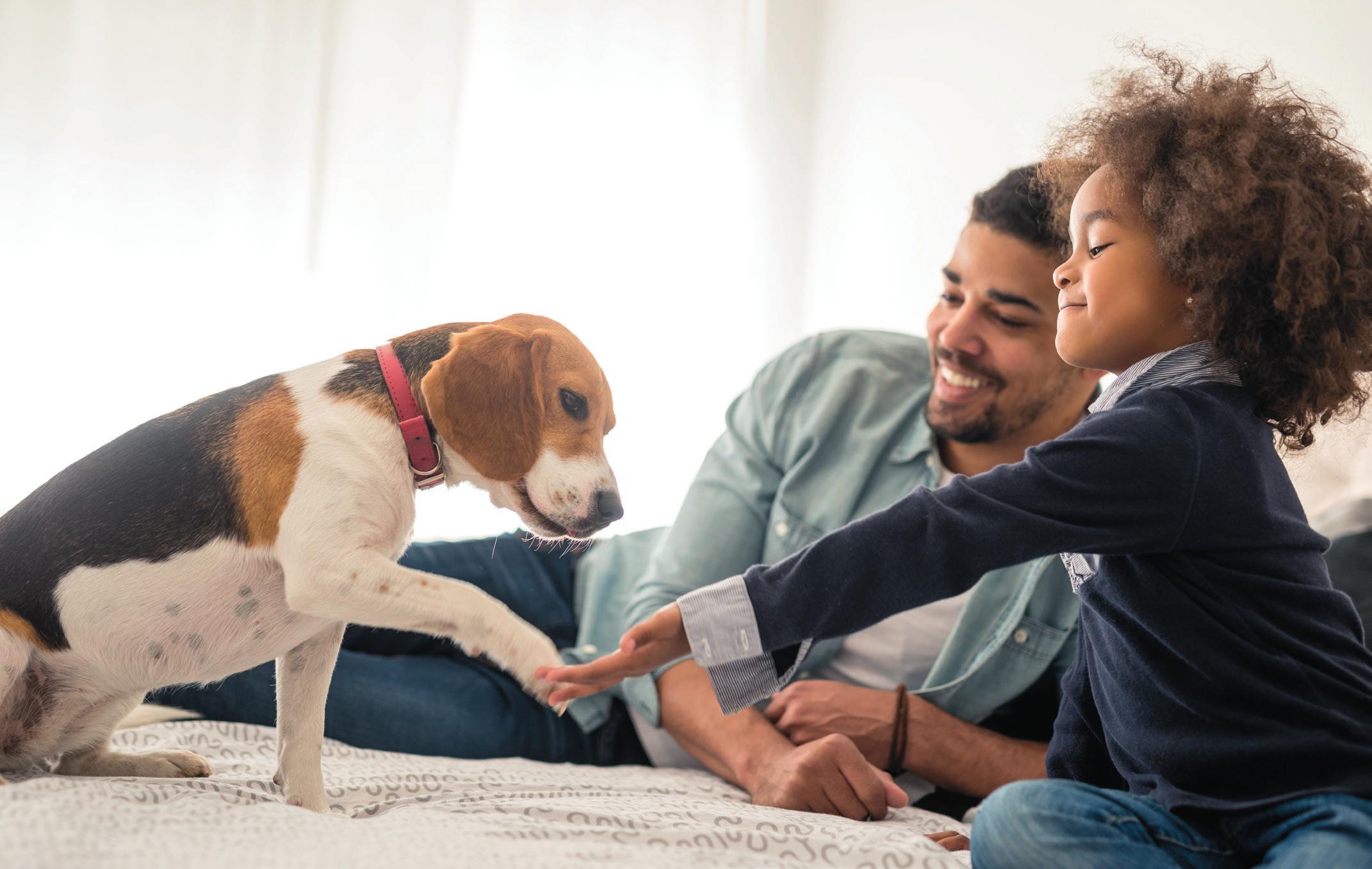Good to Know Kids and Dogs: Staying Safe
By Michael Felber, RN
D
ogs provide companionship and promote the social, emotional and cognitive development of children. But keeping kids safe around dogs is important. Dog bites can cause physical and psychological trauma, infection, and transmission of diseases such as tetanus and rabies. Children are by far most likely to be severely injured by dog bites, making safe behavior around man’s best friend essential. Any breed or size dog can bite a child. And most people are bitten by a dog they know. A dog’s likelihood to bite is influenced by its training, temperament, and previous experience with children. Any dog may bite if startled or overstimulated, feels cornered or threatened, or if protecting food, territory, or its canine or human family. Dogs have an instinct to chase, so the human behavior of running away can overstimulate or make aggressive behavior worse.
6
Parents Press | September 2020
To keep your child safe around dogs: • When adding a dog to your family, pick one with a good temperament. An older dog should have had experience with children. • Never leave young children unattended with a dog. • Be aware of dog body language. Going still or stiff, raising the fur on its neck, or growling are warning signs. A happy dog that wants to play should have soft and wiggly body language.
Teach your children dog safety rules, including: • Use a gentle touch and calm body with any dog. When getting acquainted with a dog stay still and let the dog approach you. • If approached by a new or aggressive dog, use the SAFE stance – Stay still, Arms crossed, Face and Eyes looking away.
• Stay away from dogs you don’t know. • If a dog is sleeping, eating, or caring for puppies, leave it be. • Never take food or a toy out of a dog’s mouth. • Stay out of a dog’s personal space, such as its crate. Leave a dog that is tied up or behind a fence alone. You can provide first aid for a dog bite by applying pressure to stop the bleeding, washing the area with soap and water, and applying antibiotic ointment and a clean bandage. It is important to see a doctor for any bite that is deep, from an unknown animal, or if there are signs of infection such as warmth, redness, or pus. For severe or multiple bites, spurting or uncontrolled bleeding (does not stop after 10 minutes of pressure), call 911 for emergency treatment.






